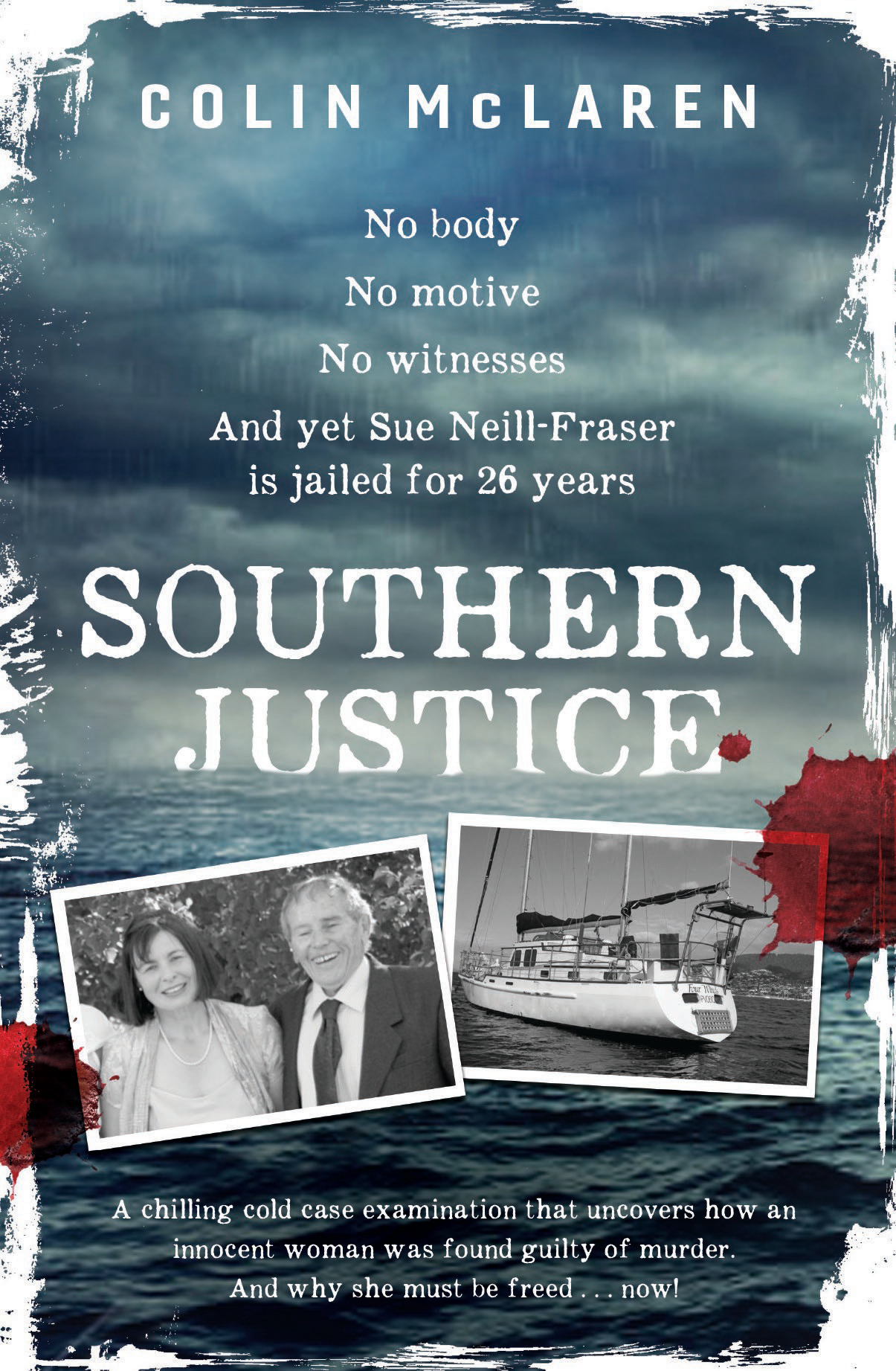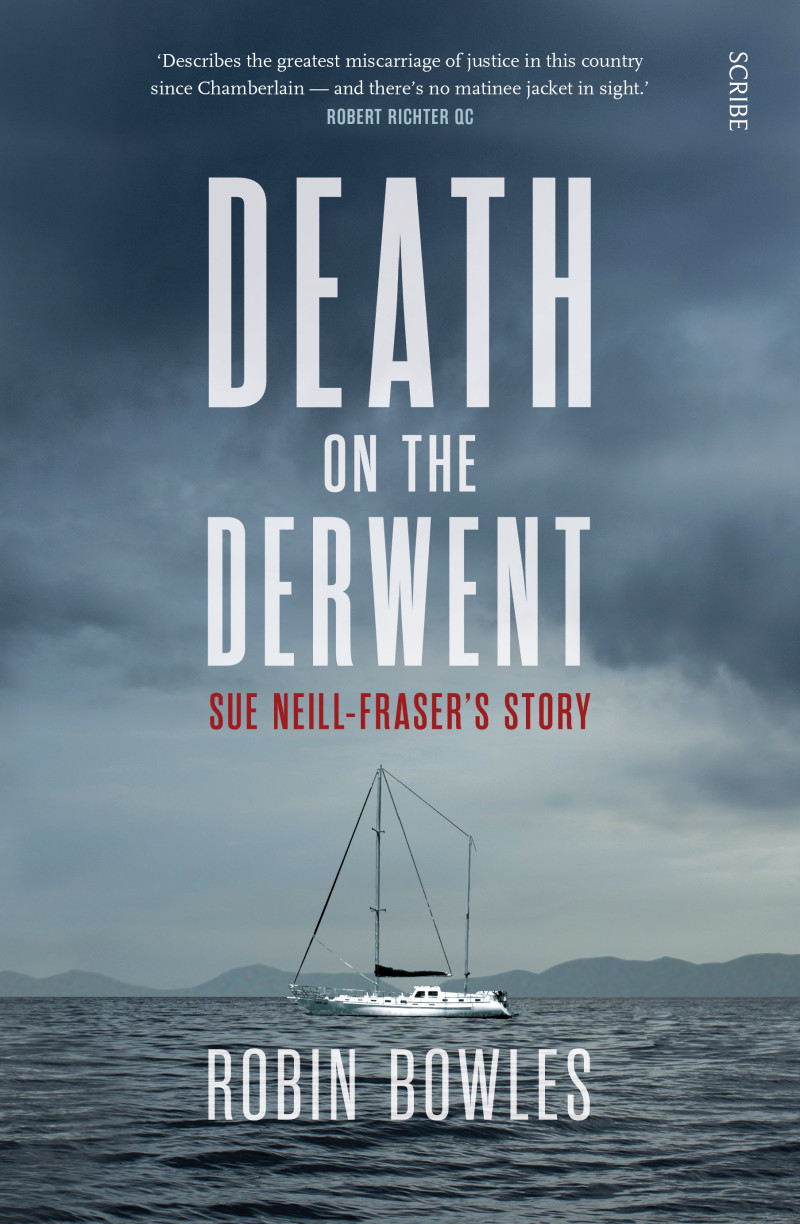Has an innocent been jailed? The general consensus appears that an injustice has been served.
Find out and decide for yourself with these behind-the-facts of the disappearance of Bob Chappell and the potentially dubious conviction of Sue Neill-Fraser.
Southern Justice – Colin McLaren
Daybreak, Sandy Bay, Hobart, 27 January 2009. A yacht, the Four Winds, is seen listing low to the waterline. When police board the sinking vessel there is no sign of the owners, Bob Chappell and Sue Neill-Fraser but, disturbingly, they find blood and a knife.
Bob Chappell is never seen again. The blood spatter leads police to the conclusion that he has been murdered. Remarkably, Sue Neill-Fraser is arrested, found guilty and sentenced to 26 years' imprisonment.
May, 2016. Bestselling true-crime author Colin McLaren probes the notorious cold case that grips Australia. What he discovers shocks him. No body, no motive, no witnesses, a puddle of unexplained DNA liquid, undisclosed police documents, insubstantial scenarios - all lead him to believe Sue Neill-Fraser was wrongly convicted. He is not alone, as lawyers line up to help her.
August 2017. Sue Neill-Fraser remains in prison. When questions are asked of her conviction, new witnesses are charged, including a lawyer, and unbearable pressure is applied until, fearing for his own liberty, Colin McLaren flees the country. Southern Justice lays out the evidence that should force a Royal Commission to reopen the case and exonerate an innocent woman.
Death on the Derwent – Robin Bowles
When Bob Chappell disappeared from his yacht, moored in the Derwent Estuary near the Royal Yacht Club of Tasmania's marina, on the night of 26 January 2009, he left behind his pipe and tobacco — something that his partner of 18 years, Sue Neill-Fraser, knew he would never willingly do. What she didn't know was that despite no body, no weapon, no cause of death, and no witnesses, she would soon become the only suspect in Chappell’s disappearance.
In their haste to wrap up the case, the police charged Neill-Fraser with murder. In her eagerness to assist police, she virtually talked her way into their hands. And after a lengthy trial that resulted in a guilty verdict, the judge delivered Neill-Fraser a crushing 26-year sentence.
But was the verdict unsafe? Many of Australia’s leading legal minds think so, and other reasonable hypotheses have been mooted about what might have happened on the Derwent that night. The Tasmanian government has changed its laws to give Neill-Fraser one last crack at proving her innocence, because that is what it's come to now — proving her innocence.
The result of years of investigation, and based on extensive interviews with all the key players — including Sue Neill-Fraser and her family, local underworld figures, and legal luminaries — Death on the Derwent is a riveting story of justice not served.



